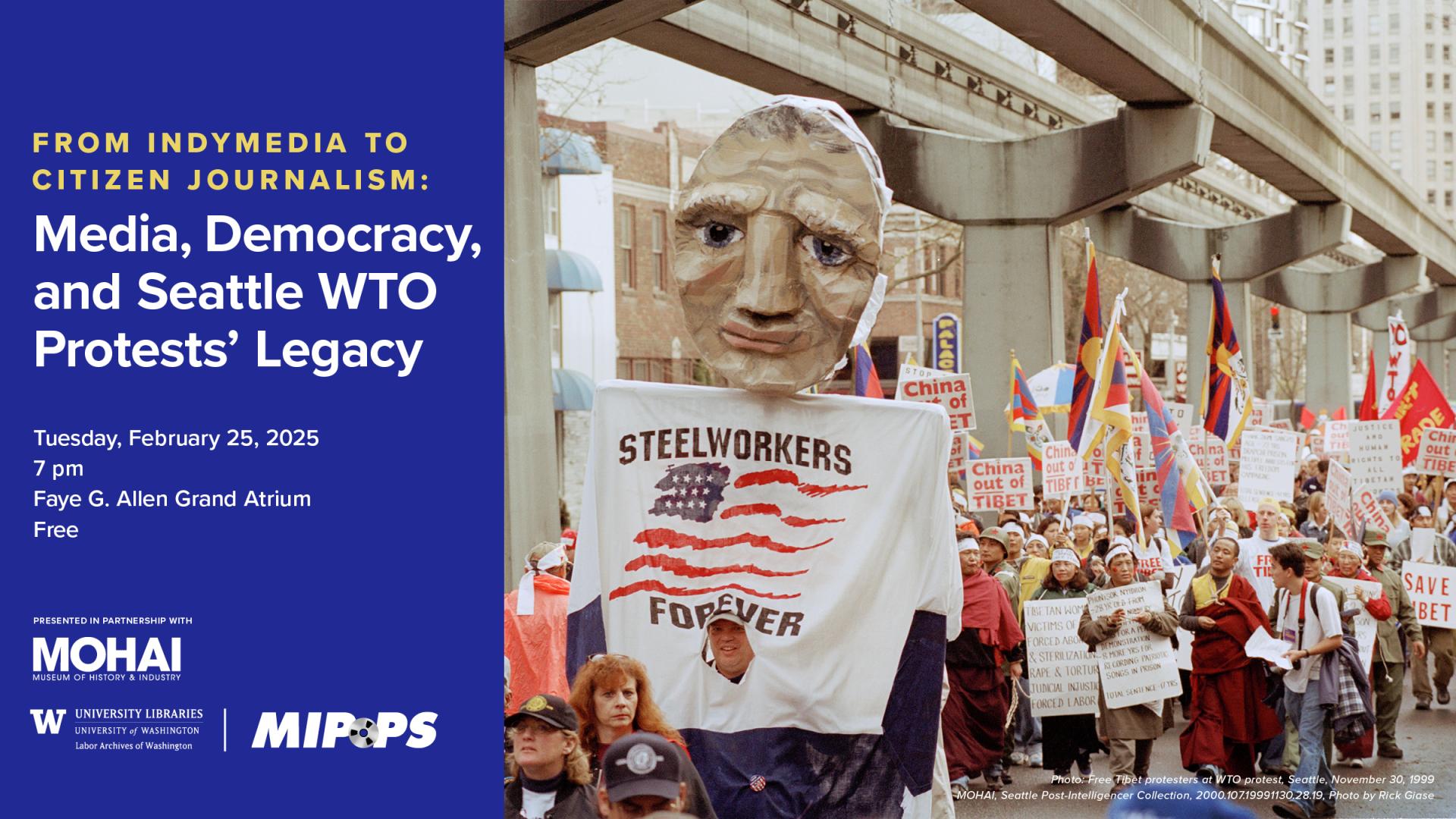Reliving the Battle in Seattle: Digitizing the Independent Media Center’s WTO Protest Archives

By Conor Casey, Head of the Labor Archives of Washington
The Labor Archives of Washington, part of the University of Washington Libraries, is proud to announce the digitization, description, and preservation of over 400 hours of raw footage from the 1999 World Trade Organization (WTO) protests in Seattle. This ambitious project, conducted in collaboration with the UW Film Archives and Moving Image Preservation of Puget Sound (MiPops), ensures that this vital historical record will soon be available online.
This effort coincides with a 25th-anniversary exhibit and commemorative programs organized by the Museum of History and Industry (MOHAI), running from November 2024 through March 2025. The initiative breathes new life into the history of the projects and relates to this collection: the Independent Media Center World Trade Organization Video Recordings and Log Books, an archive comprising 15.09 cubic feet of materials, including 268 BetaSP tapes, 89 MiniDV cassettes, and detailed logbooks.
Donated and meticulously described by activist, oral historian, and filmmaker Jill Freidbeg, the collection was created by activist-journalists during the protests. This collection provides a firsthand view of a pivotal week in global resistance, community organizing, and groundbreaking media advocacy. The footage vividly captures the energy of a movement that united labor leaders, environmentalists, farmers, and artists in opposing economic globalization. Highlights include grassroots media coverage—a precursor to today’s citizen journalism—and gripping scenes of peaceful protesters confronting heavily armed law enforcement.
The launch of the WTO Protest Footage Digitization Project aligns with MOHAI’s calendar of commemorative exhibits and events, where visitors can explore the history through panels, screenings, and interactive installations.
Print materials from the Independent Media Center collection are already accessible at the UW Libraries’ Special Collections Reading Room, and the digitized archives will become publicly available via a dedicated website in early 2025.
For more information, visit the Independent Media Center archive page.